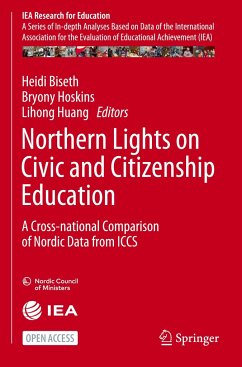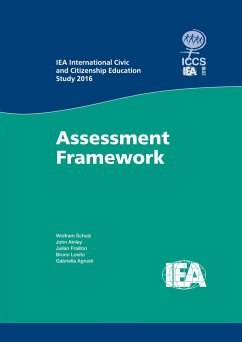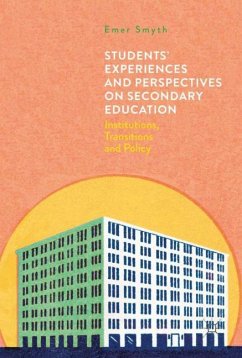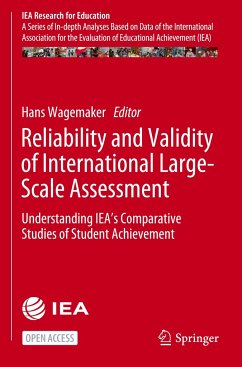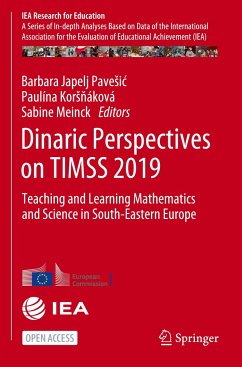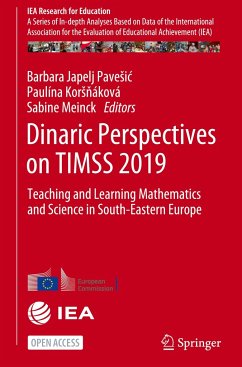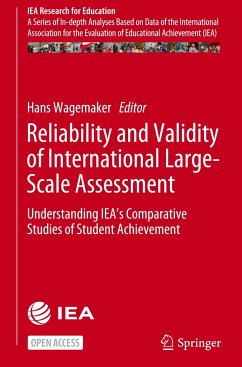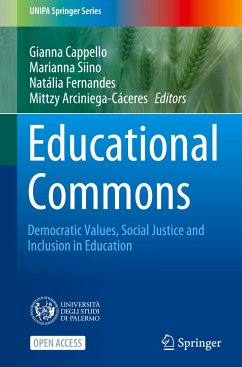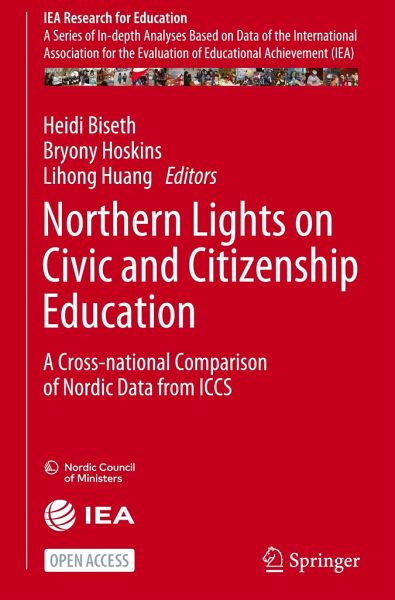
Northern Lights on Civic and Citizenship Education
A Cross-national Comparison of Nordic Data from ICCS
Herausgegeben: Biseth, Heidi; Hoskins, Bryony; Huang, Lihong
Versandkostenfrei!
Versandfertig in 6-10 Tagen
38,99 €
inkl. MwSt.

PAYBACK Punkte
19 °P sammeln!
This open access book presents an in-depth analysis of data from ICCS. An international group of scholars critically address the state of civic and citizenship education in the four Nordic countries that participated in the IEA International Civic and Citizenship Education Study (ICCS) in 2009 and 2016. The findings are of particular relevance to educators at all levels, from school education through to teacher education.Nordic countries have long traditions of democracy and their students have performed relatively well in the ICCS assessments. Nonetheless, citizenship education continues to e...
This open access book presents an in-depth analysis of data from ICCS. An international group of scholars critically address the state of civic and citizenship education in the four Nordic countries that participated in the IEA International Civic and Citizenship Education Study (ICCS) in 2009 and 2016. The findings are of particular relevance to educators at all levels, from school education through to teacher education.
Nordic countries have long traditions of democracy and their students have performed relatively well in the ICCS assessments. Nonetheless, citizenship education continues to evolve and has received increasing attention in recent educational reforms, indicating policymakers understanding that schools play an important role in establishing democratic values among future citizens.
Data from ICCS can be used to analyze, discuss, and reflect on the status of civic and citizenship education and can contribute to the discourse on the potential role of educationin contributing to sustainable democracies for a common future. However, teaching citizenship and learning democracy are two different things. While young people can be taught about democracy in school, it is vital that schools work together with the wider community in which youth operate to strengthen civic understanding and values for all young people regardless of their social and economic background.
Nordic countries have long traditions of democracy and their students have performed relatively well in the ICCS assessments. Nonetheless, citizenship education continues to evolve and has received increasing attention in recent educational reforms, indicating policymakers understanding that schools play an important role in establishing democratic values among future citizens.
Data from ICCS can be used to analyze, discuss, and reflect on the status of civic and citizenship education and can contribute to the discourse on the potential role of educationin contributing to sustainable democracies for a common future. However, teaching citizenship and learning democracy are two different things. While young people can be taught about democracy in school, it is vital that schools work together with the wider community in which youth operate to strengthen civic understanding and values for all young people regardless of their social and economic background.





